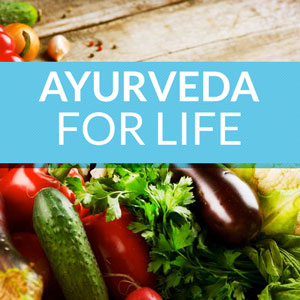Ayurveda Made Easy
Q&A with an ayurvedic doctor
I’ve been studying Ayurveda and using it in my daily life for the last 2 years. While the major ayurvedic principles are simple and  logical, certain specifics can get a little tricky, eg: how to eliminate dryness without causing congestion…. There are hundreds of books, magazines, and online resources that contain load of information but from a time-saving perspective there is nothing better than asking a seasoned ayurvedic practitioner personally! Dr JV Hebbar , the founder of www.easyayurveda.com was kind enough to answer a few of my burning questions on ayurveda.
logical, certain specifics can get a little tricky, eg: how to eliminate dryness without causing congestion…. There are hundreds of books, magazines, and online resources that contain load of information but from a time-saving perspective there is nothing better than asking a seasoned ayurvedic practitioner personally! Dr JV Hebbar , the founder of www.easyayurveda.com was kind enough to answer a few of my burning questions on ayurveda.
Q. What is the major difference between Modern medicine and Ayurveda?
A.
- Focus: Ayurveda focuses on maintaining health. It encompasses all areas of human life: diet, lifestyle, habits, health changes at different ages, seasonal variations. While Modern medicine or Allopathic system concentrates mainly on disease and treatment.
- Source of medicine – Most of the Ayurvedic medicines are herbal in nature, a few other being animal and mineral origin. Allopathic medicines are basically synthetic chemicals.
- Belief system – 90 % of the Ayurvedic medicines and principles are based on the truths told in the ancient Ayurveda text books written many centuries ago, by seers based on their spiritual experiences, traditional beliefs and observational knowledge. But still they are relevant in this modern age. Allopathic principles are based on the clinical trials.
Note from Nadya: It is an interesting point. While it is amazing that our society is technologically advanced to carry out clinical studies we still don’t seem to understand human body as well as ancient ayurvedic practitioners did. For example, modern medicine only recently started recognizing the amazing effects of cinnamon on blood sugar levels. This fact was known thousands years ago to ayurveda. The list of similar examples is endless!
Q. What are some natural Ayurveda cures to improve attention span and concentration?
A. 1. Ayurveda recommends regular use of cow ghee (clarified butter) as a natural way to improve the concentration and intelligence.
2. There are Ayurveda herbs such as Bacopa monnieri (Brahmi), Centella asiatica, Clitorea ternatea etc, which are very helpful. By herbs, I do not mean the chemical extracts of these herbs. In Ayurveda, these herbs are processed with ghee to prepare a special herbal ghee, such as Brahmi Ghee. In Southern part of India, herbal soup prepared with Centella asiatica is used as part of diet to help improve brain skills in children.
3. Ayurveda also recommends herbal oil massage over head and body. It improves sleep quality and in Ayurveda terms, it helps to calm ‘Vata’. According to Ayurveda, lack of attention and concentration are due to Vata dosha imbalance.
Q. What’s your stand on ‘healthy, organic’ frozen dinners? How healthy can frozen food be?
A. Ayurveda totally rejects the concept of frozen food. Chemical constitution-wise or nutrition-wise, they may be ‘safe-to-eat’ but Ayurveda takes physical as well as nutritional aspects both into consideration. As per Ayurveda, frozen foods, though, they are ‘natural’ and ‘organic’, imbalance Tridosha (Vata, Pitta and Kapha), digestive power and cause ‘Ama’ (semi digested, micro remnants of food and enzymes in the digestive tract, which Ayurveda considers as the main cause of most of the diseases)
Q. Is it possible to over-exercise? How do you know when is enough?
A. Yes. It is possible to over-exercise. It is a subjective issue. It is dependant upon the nutritional levels, digestion power, stamina, fat & muscle composition of the body, and daily physical activity levels. Sleep is another factor to consider for over exercise. If you have not slept for at least 6 hours the previous night, then jogging for a mile may lead to over-exercise and fatigue.
Ayurveda says that over-exercise causes severe Vata imbalance, impairs body constitution and drains body tissues.
Ayurveda suggests simple symptoms to know when to stop exercise – such as excessive sweating on forehead and thighs, lack of control over breath, feeling emptiness in stomach, feeling burnt out, feeling as if one is breathing forcefully with abdominal muscles, excessive tiredness through out the day.
Q. What about cravings? How often should we give in? Is there a reason to fight your body’s cravings or should we always follow them?
A. There are instances where craving is natural such as craving for sweet and sour food stuff during pregnancy. If the craving is safe and healthy one, like craving to eat a particular kind of vegetable then it is fine to give in. Craving is OK as long as common sense says that the particular type of craving is beneficial and supports overall health and it does not make the person fully addicted to it.
There are some temporary cravings such as eating a particular sweet for example. This type of craving is ok, if we eat ice cream once in say, 2 weeks and we take measures to counter balance its ill effects. For example, exercising a little more to burn out the extra calories that we have taken in the form of sweets. Taking Triphala powder with honey or taking Guggulu (Commiphora mukul) tablets helps to instantly nullify the effect of deep fried, oily food stuff, naturally. So, we can not say that we should always avoid craving. We are human beings and too much strictness is too bad. It is ok to give in once in a while, as long as we take counter balance measures.
Q. Is there such a thing as an ayurvedic energy drink for constantly exhausted over-worked dwellers of a modern city?
A. There are innumerable Ayurveda herbs that are rich in anti oxidants, like Amla (Indian gooseberry), Ashwagandha (Withania somnifera), Aloe vera etc, which can be used for energy. Ashwagandha leha, Chyawanprash, Brahma rasayana, (these three are herbal jams), Aloe vera juice are a few Ayurveda energy boosters. But it is always better to consult an Ayurveda expert rather than deciding on one’s own. Over-worked dwellers of a modern city need more of mental relaxation than just an energy drink. Herbal oil massage followed by hot water bath, at least once a week, Yoga techniques, prayer and meditation, regular exercises / physical games, etc go a long way to relieve stress and keep the body and mind energized through out the day.
Q. What entitles being a good ayurvedic patient?
A. Very good, intelligent, simple but difficult question. Well, Ayurveda is for everyone. Ayurveda is not only a bunch of medicinal herbs. Ayurveda is a way of life. Simple daily techniques such as drinking warm water / cold water, exercise / rest, good sleep / avoiding afternoon nap, oil / powder massage, social activities, can all be medicinal according to Ayurveda. It is a matter of learning how to use them correctly to maintain a perfect balance.
You need not necessarily be a ‘patient’ to adopt Ayurveda in your life but there are a few factors that can make working with an ayurvedic practitioner more successful. A person who follows the rules below will reap the most benefits from ayurveda:
- Patience – our bodies need time to heal. Herbal medicine treats the root cause not the symptoms like modern medicine so it takes longer but the result is more profound.
- Willingness to overcome discomfort. For example, ayurveda strongly believes in the medicinal effects of taste so all the herbs are preferably taken in a tea, jam, or ghee form. Some of these medicines can be very strong-tasting for a Western palate but their effects are way stronger than mass-produced tablets.
- Readiness to adopt the prescribed lifestyle changes and work on eliminating those habits that cause disease in the first place.
- Willingness to quit self medication with herbs based on advertisements and Internet information. What is a health-nectar to one person can be a poison to another so it is always best to consult an experienced practitioner. Many of the herbs may interact or counter balance with each other, leading to increased, decreased or adverse health effects
Disclaimer: It is advisable to consult an Ayurveda specialist before adopting any of the Ayurveda techniques discussed above.
Dr JV Hebbar maintains a regular Ayurveda and Healthy Lifestyle blog at www.easyayurveda.com. He has a Bachelors degree in Ayurveda (B.A.M.S), Masters degree in Ayurveda medicine and Pharmaceutics, and a Post graduate diploma in pharma sales and management. He is currently working as an Indian Ayurveda Doctor, Online Ayurveda Consultant, Lecturer in an Ayurveda College, Ayurveda Pharma consultant, Author and columnist.
Follow his blog: http://easyayurveda.com
Connect with Dr Hebbar on Twitter: http://twitter.com/jannihebbar
Related articles
- Sharing Ayurveda Wisdom (realyoganyc.wordpress.com)
- 5 Herbs To Meditate Better and Stay Young (realyoganyc.wordpress.com)
- A Drink That You Can’t Afford To Miss (realyoganyc.wordpress.com)
- Real Ayurvedic Skincare (realyoganyc.wordpress.com)









